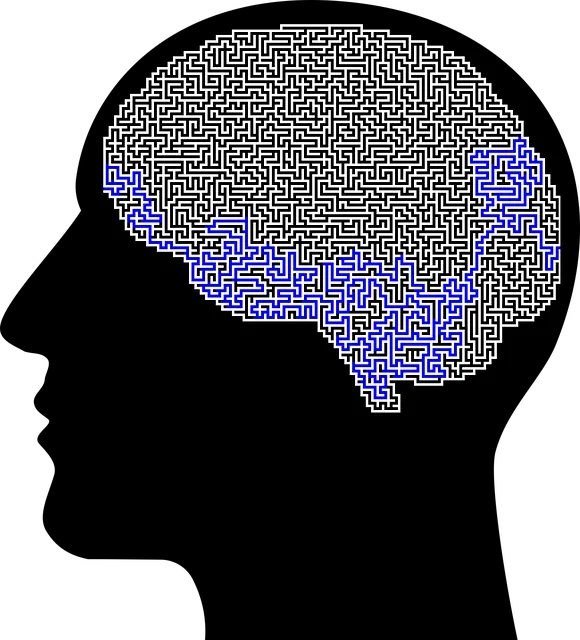Lakewood Kaiser Permanente offers comprehensive trauma support through specialized mental health services. Their compassionate providers employ evidence-based therapies like EMDR and CBT, tailored interventions, and holistic approaches to address individual needs. A multifaceted strategy includes group support, online counseling, crisis hotlines, and burnout prevention for staff, ensuring accessibility and inclusivity in trauma healing.
Trauma support services are vital to healing communities, especially in areas like Lakewood, where access to specialized care can make a significant difference. This article explores the critical role of Lakewood Kaiser Permanente mental health providers in addressing trauma and its lasting effects. We delve into understanding trauma, its impact on individuals and communities, and how healthcare professionals can design effective support programs. Additionally, we discuss strategies for enhancing accessibility and inclusion to ensure that all affected persons receive the necessary care.
- Understanding Trauma and Its Impact: A Foundation for Support Services
- The Role of Lakewood Kaiser Permanente Mental Health Providers
- Designing Effective Trauma Support Programs: Best Practices and Considerations
- Accessibility and Inclusion: Ensuring Help is Reachable for All Affected Individuals
Understanding Trauma and Its Impact: A Foundation for Support Services

Trauma is a complex psychological response to distressing events or experiences that overwhelm an individual’s ability to cope. It can manifest in various ways, from acute reactions like shock and fear to chronic conditions such as post-traumatic stress disorder (PTSD). Understanding trauma goes beyond its immediate effects; it involves recognizing the profound impact it has on mental health and overall well-being. This includes not just the victim but also their support networks and communities.
At Lakewood Kaiser Permanente, our mental health providers are dedicated to providing compassionate and specialized care for individuals affected by trauma. We offer a range of services designed to address the multifaceted nature of trauma recovery, including individual therapy, group support sessions, and evidence-based programs focused on mood management and stress reduction. Our approach aims to foster resilience, promote healing, and help individuals reclaim their lives after traumatic events. Additionally, we actively engage in mental illness stigma reduction efforts and provide educational workshops on topics such as stress management, empowering our community to better understand and support those affected by trauma.
The Role of Lakewood Kaiser Permanente Mental Health Providers

The Lakewood Kaiser Permanente mental health providers play a pivotal role in supporting individuals who have experienced trauma. These professionals are equipped with specialized knowledge and skills to offer comprehensive care tailored to each patient’s unique needs. They provide a safe space for individuals to process their traumatic experiences, fostering healing and resilience through various therapeutic approaches.
One of the key contributions lies in organizing Stress Management Workshops, where individuals can learn practical strategies to cope with stress and anxiety stemming from traumatic events. Additionally, they facilitate Self-Awareness Exercises designed to enhance emotional understanding and regulation, empowering individuals to navigate their feelings effectively. Furthermore, Social Skills Training sessions help trauma survivors rebuild interpersonal connections and develop healthy communication patterns, fostering a sense of belonging and support within the community.
Designing Effective Trauma Support Programs: Best Practices and Considerations

Effective trauma support programs require a multifaceted approach that integrates best practices and considerations tailored to the unique needs of individuals affected by traumatic experiences. At Lakewood Kaiser Permanente, mental health providers play a pivotal role in designing interventions that foster healing and resilience. One key practice is incorporating evidence-based therapies such as Eye Movement Desensitization and Reprocessing (EMDR) and Cognitive Behavioral Therapy (CBT), which have proven successful in treating complex trauma. These therapeutic modalities help individuals process and reframe traumatic memories, reducing the lasting impact of stress and promoting emotional well-being.
Additionally, community outreach program implementation is vital for reaching underserved populations and ensuring accessibility to care. Lakewood Kaiser Permanente can collaborate with local organizations and community leaders to develop targeted initiatives that address cultural nuances and barriers to accessing mental health services. By integrating Stress Reduction Methods tailored to diverse communities, the programs can effectively mitigate burnout among both service providers and clients, fostering a sustainable support environment. Burnout prevention strategies, such as staff training on trauma-informed care and promoting self-care practices, are essential to sustaining the quality of services over time.
Accessibility and Inclusion: Ensuring Help is Reachable for All Affected Individuals

Accessibility and inclusivity are paramount when providing trauma support services. Ensuring that help is reachable for all affected individuals means offering a range of options tailored to diverse needs. At Lakewood Kaiser Permanente, mental health providers leverage various platforms, including in-person therapy, online counseling, and crisis hotlines, to make services accessible regardless of physical or time constraints. This multi-faceted approach caters to different preferences and circumstances, fostering a sense of safety and support for those who have experienced trauma.
Moreover, promoting emotional well-being involves creating an environment where individuals feel welcomed and understood. By integrating self-care practices and emotional well-being promotion techniques into treatment plans, Lakewood Kaiser Permanente’s mental health providers empower clients to take proactive steps towards recovery. These strategies can include stress management techniques, mindfulness exercises, and building resilient coping mechanisms—all essential tools for navigating the challenges that come with trauma healing.
In conclusion, establishing comprehensive trauma support services requires a multifaceted approach. By understanding the profound impact of trauma and leveraging the expertise of Lakewood Kaiser Permanente mental health providers, we can design effective programs that cater to diverse needs. Implementing best practices, prioritizing accessibility and inclusion, ensures that support is available to all affected individuals, fostering healing and resilience in our communities.






